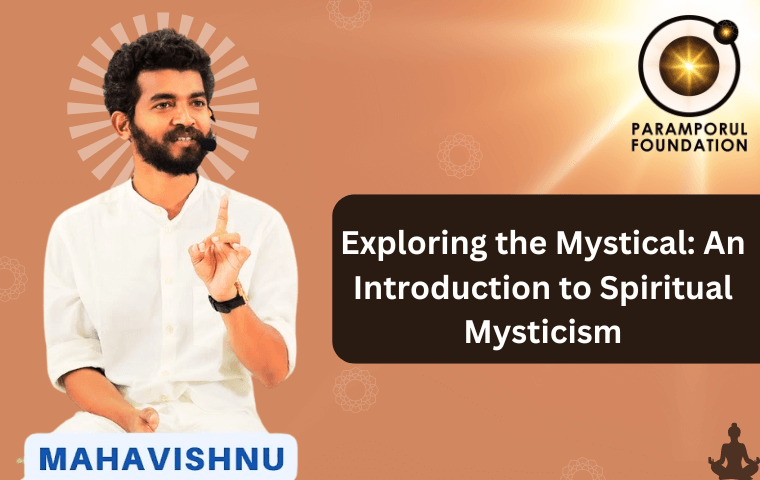In a world often driven by materialism, many people are searching for something deeper, something beyond the physical world. This search often leads them to mysticism, a path that has been followed by countless spiritual seekers throughout history.
What is Mysticism?
Mysticism is mainly about having a direct connection with the divine or the ultimate reality. This connection goes beyond what we can understand through our senses or intellect. Mystics from different cultures and religions try to go beyond the physical world by practicing meditation, prayer, and deep thinking.

The Purpose of Mysticism
Mysticism is not just about having an altered state of consciousness; it’s about gaining knowledge that can help in daily spiritual practices. Mystics believe that this higher knowledge can only be accessed in a state where one is connected to a reality beyond the normal human experience.
Mystical Traditions Across the World
Mysticism is found in nearly all religions and spiritual traditions. Whether it’s Sufi poets in Islam, Christian mystics like St. Teresa of Avila, or the teachings of Zen Buddhism and Advaita Vedanta, each tradition provides unique ways to deepen your spiritual journey. Despite the differences, the underlying goal remains the same: to experience a profound connection with the divine or ultimate reality.

Challenges in Understanding Mysticism
Mystical experiences can be hard to describe because they often go beyond what language can capture. For some, it’s a feeling of unity with everything, while for others, it’s an encounter with a higher power. Different religious beliefs can shape how these experiences are understood and explained. There is also an ongoing debate about whether someone outside a particular religion can fully understand its mystical experiences.

Cultivating Your Inner Mystic
Anyone, regardless of their religious background, can explore the path of mysticism. It starts with cultivating a sense of wonder and developing practices like regular meditation or prayer. These practices can greatly change how someone views life and their place in the world.
The Benefits of Mystical Experiences
Mystical experiences can change the way we see ourselves and the world. They can bring a sense of peace, purpose, and a deeper connection to everything around us. Although these experiences may be difficult to reach, taking small steps towards mystical practices can greatly improve your life.
Exploring the Spiritual Mysticism
Some scholars believe that there is a deep connection between mysticism and moral behavior. They believe that mystical experiences, which blur the lines between yourself and others, can create a sense of unity and make it easier to do the right thing. This sense of oneness may lead to greater compassion and concern for others. However, others argue that not all mystical teachings align with moral principles. For example, the belief that “everything is one” in monistic mysticism might make it harder to see people as individuals, which can make doing good things for others seem less important.
There is also a view that mystical experiences and moral behavior are not inherently connected. A person might reach a state of selflessness through mystical practices, but this doesn’t necessarily mean they will act morally. Their behavior might depend more on their cultural background and the moral teachings they have received rather than on the mystical experience itself.
In recent years, there has been a growing interest in what is called “secular mysticism.”This type of mysticism emphasizes practices like meditation and using psychedelics to gain mental or physical benefits rather than seeking complete spiritual transformation. Secular mysticism often separates traditional spiritual practices from their religious origins and views mystical experiences from a natural, non-religious perspective.
Secular mysticism raises important questions about the nature of mystical experiences. Do these experiences provide insight into a deeper reality, or are they simply products of the brain? Can these experiences, when taken out of their religious setting, still help people live a meaningful and purposeful life? Exploring these questions is crucial for understanding the role of mysticism in both spiritual and secular contexts.
Conclusion
Exploring the Mystical: An Introduction to Spiritual Mysticism invites us to look beyond the material world and explore the deeper aspects of existence. By embracing mysticism, we can start a journey of self-discovery and spiritual growth, discovering the wisdom that has guided people for centuries.

